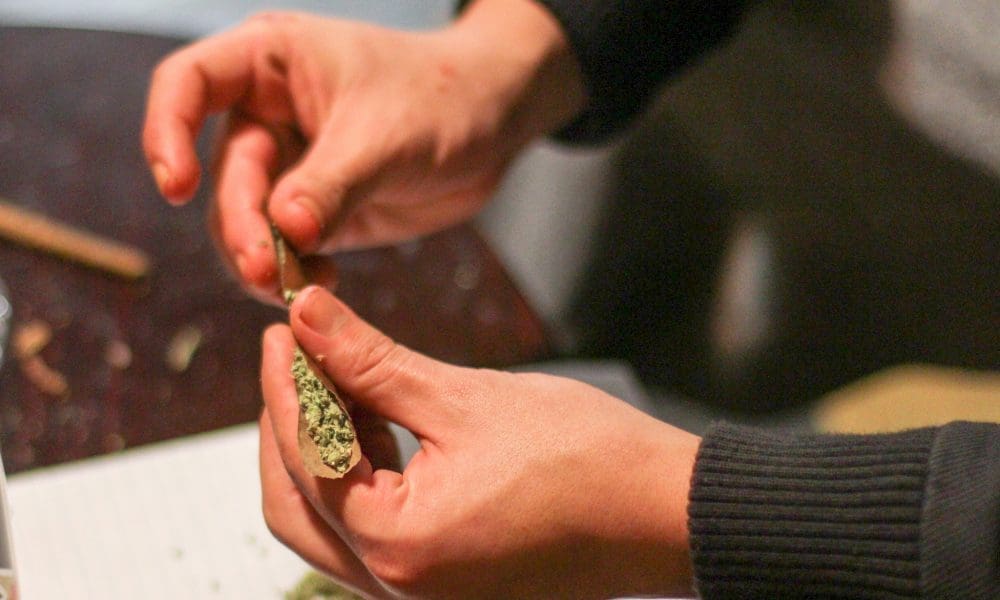“They should have the same rights of any other patient, and exactly the same restrictions.”
By Mitch Perry, Florida Phoenix
In 2021, Samuel E. Velez Ortiz, a corrections officer with the Florida Department of Corrections, was fired when a random drug test flagged him for cannabis metabolites. While he continues to challenge his termination in state courts, a new bill filed by South Florida Democratic state Sen. Tina Polsky would ensure that such an action couldn’t happen in the future to a state employee who is also a medical marijuana patient.
The Public Employee Protection Act (SB 166) would give state employees protections against “adverse employment action” based solely on an employee or a job applicant who is a qualified patient for his or her use of medical marijuana.
Polsky has filed similar legislation that would have provided employee protections for all Floridians who are medical cannabis patients, but the current version is limited only to workers employed by state agencies.
Velez Ortiz has been represented by Tampa-based attorney Michael Minardi, who has advocated for cannabis law reform for two decades. He says he has another case pending in Hillsborough County related to a firefighter who had been using Xanax to help him sleep but who moved on to cannabis when he felt excessively groggy from using the medication.
“They should have the same rights of any other patient, and exactly the same restrictions,” Minardi says of cannabis users who only use the plant when home and not on duty with their employer. “They shouldn’t be allowed to go out on their lunch break and get high and come back under the influence and affect their job. Nobody wants that, but I don’t want somebody using opiates and being at work, either.”
According to legal briefs filed nearly one year ago with the Florida First District Court of Appeal, Velez Ortiz is a military veteran with PTSD who did not want to have to go back to “taking harmful prescription medications” and thus choose to challenge the rules. The briefs say that the Department of Corrections acknowledges that the random drug tests that he took were random and not because of evidence of being impaired or unable to perform his duties.
Velez Ortiz had his medical marijuana card since 2018, approximately three years prior to the positive test in May of 2021. “Despite his medical marijuana use for over three years, there were no complaints about Mr. Velez Ortiz being unable to perform his job duties or suspicion of being under the influence at work,” his attorneys maintain.
The First District Court in June upheld the Department of Corrections decision to terminate his employment last year. Velez Ortiz now has asked the Florida Supreme Court to take up the case, where proceedings are in their preliminary stages.
Polsky’s proposal says that a public employer “may take appropriate adverse personnel action against an employee” if the agency establishes “by a preponderance of the evidence” that the use of medical cannabis is impairing the employee’s ability to perform his or her job duties or responsibilities. It also says that a public employer may consider an employee’s ability to perform his or her duties or responsibilities to be impaired “if the employee displays specific, articulable symptoms while working which adversely affect the performance of his or her duties or responsibilities.”
Medical cannabis is now legal in 38 states. About half of those states have policies that address anti-discrimination for medical cannabis patients, according to the National Conference of State Legislatures.
Chris Cano is the executive director of Suncoast NORML (National Organization for the Reform of Marijuana Laws) and now serves on the NORML national board. He’s a strong supporter of the legislation but isn’t optimistic that the GOP-controlled Legislature will see it through.
“When it comes to marijuana policy, the GOP seems content to pat themselves on the back for a job well done despite an industry rife with corruption, a lack of diversity, and the continued discrimination of nearly 1 million medical marijuana patients in both employment and medical treatment,” he told the Phoenix.
There are 864,816 qualified medical marijuana patients, according to the state’s Office of Medical Marijuana Use.
There has not yet been a similar bill filed yet in the Florida House. The 2024 legislative session officially opens Tuesday, January 9.
This story was first published by Florida Phoenix.
New Bipartisan Washington Bill Would Legalize Psilocybin Therapy For Veterans And First Responders
Photo courtesy of Martin Alonso.
Read More Feedzy

